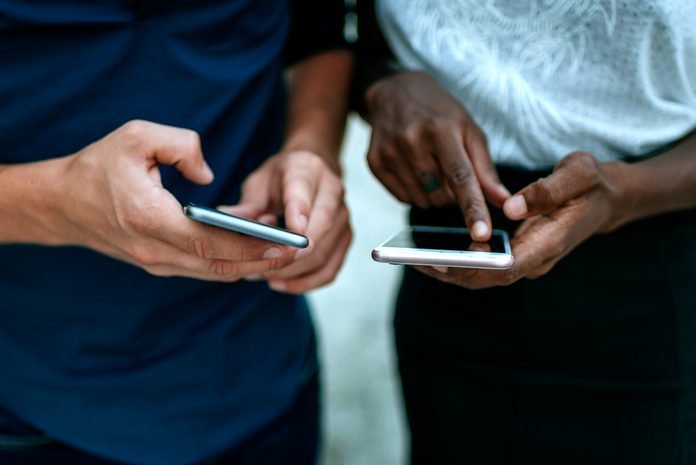
This is an issue of data privacy and fishing expeditions by officials. The message is “be careful, and know your rights”.
Our firm has been doing Partner visa applications for a long time. The couple needs to show that they have a genuine relationship. In the last few years in particular, people have pointed to electronic communications as proof. This ranges from Facebook relationship status, to text messages and video calls, and hundreds of pages of emails.
On the Spot in an Interview
Visa officers often call for face-to-face interviews with both the applicant and their supporting partner. They ask to see people’s mobile phones, because the applicant has said that they keep in touch by text a good deal, and the officer wants to verify that.
But they may not stop there. Once they have the ‘phone in their hands they can open other apps and take a look around to see if there’s anything which might be suspicious. Some of them do this, according to accounts from our clients and professional advisers, as well as evidence on files we have seen which points to Immigration officers seeing material totally unrelated to what they were originally meant to be looking at.
Why is this Wrong?
They can’t do this. As pointed out by my colleague Peter Moses in a recent article for NZAMI, the collection of personal information in this manner may amount to a breach of the Privacy Act 2020 and in particular:
- The requirement to obtain the informed consent of the subject before accessing their information (Principle 3), and give reasons why it is being collected; and
- The data collection must be done lawfully (Principle 4).
For instance, if the visa officer says that they want to see the ‘phone in order to verify that a couple text each other regularly, but they also go on to poke around in case there is something on board that suggests the person is involved in fraud, then that is an improper use of the access that they have been given.
It is a bit like the Police knocking on your door to ask to search for a dangerous individual in your back yard; and while they are there they turn the place over to see if you are storing drugs. Even they have to get a warrant to carry out such a search. The mere fact that someone hands over their ‘phone for inspection does not give an official a free pass to peer through anything they like.
There is another reason why this sort of thing is a bad show. Legally, the applicant has the responsibility to make their case for a visa to be approved. Immigration is not required to go beyond what they are given in order to make a decision. If, for example, someone refused to let an officer see more than they are prepared to let them see, then there is no legitimate way in which they can be forced to give access to all their personal affairs on the pretext that “I need all this information to do my job”. That doesn’t prevent some overbearing behaviour, including threats that a failure to cooperate will lead to an unhappy ending.
When approached for comment by NZAMI, Immigration New Zealand said the following:
Immigration officers who undertake face-to-face interviews have been
(quoted in NZAMI E-news, 25 June 2021)
trained to respect the applicant’s privacy, as well as adhere to New
Zealand’s Privacy Act 2020 and the administrative law requirements
of fairness and natural justice. That is why full and informed consent
must be granted by the applicant before the immigration officer views
content on the mobile phone. Immigration officers should only look at
content on the phone that they have received permission for, and this
should be done in full view of the applicant. If an immigration officer
wants to view any other content, they must seek permission first.
Moral of the Story
One answer is to refuse to hand over your ‘phone at all. We don’t recommend that as a starting position, because there may be very helpful evidence on board which would improve your chances of success. Furthermore, it could be seen as meaning that you had something to hide – when you don’t. While the refusal to provide information on request, on its own, should not be used against someone, immigration staff are only human and may not be able to help forming a negative opinion that colours their final decision.
Instead, the right approach is to ask the visa officer to explain exactly what sort of material they want to look at. Then, make sure that you can see what they are doing.
If they stray, you have the right to require them to hand the ‘phone back. If they refuse, then stop the interview. You would then have grounds to make a complaint of improper conduct, notify breaches of the Privacy Act to the Commissioner, or even an approach to the Police if you don’t get the item back promptly (although it is pretty unlikely that an official would hang on to the ‘phone if you threatened to escalate the matter).
It should be clear that this topic is important for matters other than immigration cases..
A visa decline resulting from this sort of fishing expedition may be challenged, because it relies upon information improperly obtained. Sometimes there is a “smoking gun” in the file materials which gives the clue to exactly what an officer was looking at, although it can also be difficult to piece that together.
Contact us, if you are aware of a situation where Immigration might have got hold of more information than they were entitled to see.
